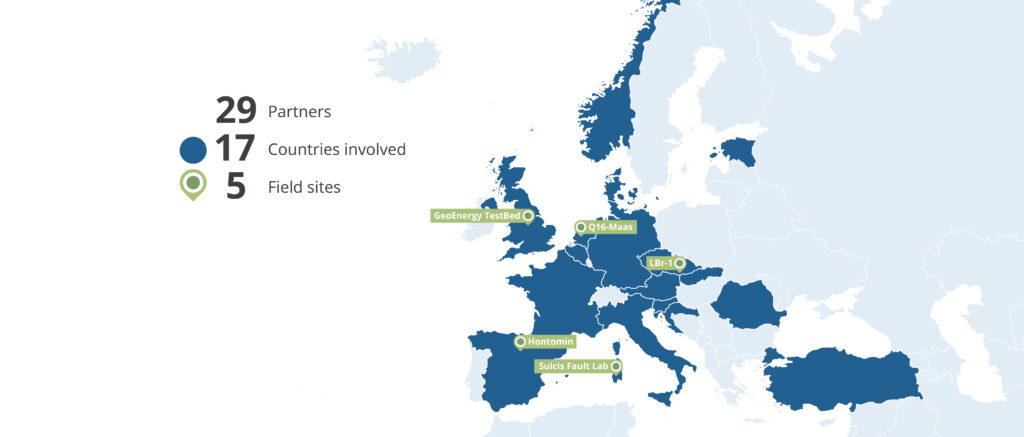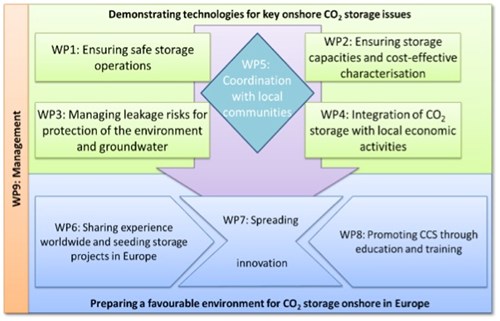ENOS – ENabling Onshore CO2 Storage in Europe
A consortium involving more than 20 international partners, among NHAZCA and Sapienza University of Rome, has been awarded by a grant for a 4 years project in the Horizon 2020 programme funded by the European Commission. The project, called ENOS, is an initiative of CO2GeoNet and brings together small and medium enterprises, industry, research centres and academia from 9 different countries. The main aim of the project is to facilitate the onshore CO2 storage in Europe also by testing and demonstrating in the field technologies specifically designed for the onshore environments. NHAZCA will give its contribution to the research project by applying different kinds of remote sensing techniques for the monitoring of deformations on test site.
To meet the ambitious EC target of an 80% reduction in greenhouse gas emissions by 2050, CO2 Capture and Storage (CCS) needs to move rapidly towards full scale implementation with geological storage solutions both on and offshore. Onshore storage offers increased flexibility and reduced infrastructure and monitoring costs. Enabling onshore storage will support management of decarbonisation strategies at territory level while enhancing security of energy supply and local economic activities, and securing jobs across Europe. However, successful onshore storage also requires some unique technical and societal challenges to be overcome.
ENOS will provide crucial advances to help foster onshore CO2 storage across Europe through:
1) Developing, testing and demonstrating in the field, under “real-life conditions”, key technologies specifically adapted to onshore storage.
2) Contributing to the creation of a favourable environment for onshore storage across Europe.
The ENOS site portfolio will provide a great opportunity for demonstration of technologies for safe and environmentally sound storage at relevant scale. Best practices will be developed using experience gained from the field experiments with the participation of local stakeholders and the lay public. This will produce improved integrated research outcomes and increase stakeholder understanding and confidence in CO2 storage. In this improved framework, ENOS will catalyse new onshore pilot and demonstration projects in new locations and geological settings across Europe, taking into account the site-specific and local socio- economic context. By developing technologies from TRL4/5 to TRL6 across the storage lifecycle, feeding the resultant knowledge and experience into training and education and cooperating at the pan-European and global level, ENOS will have a decisive impact on innovation and build the confidence needed for enabling onshore CO2 storage in Europe.


